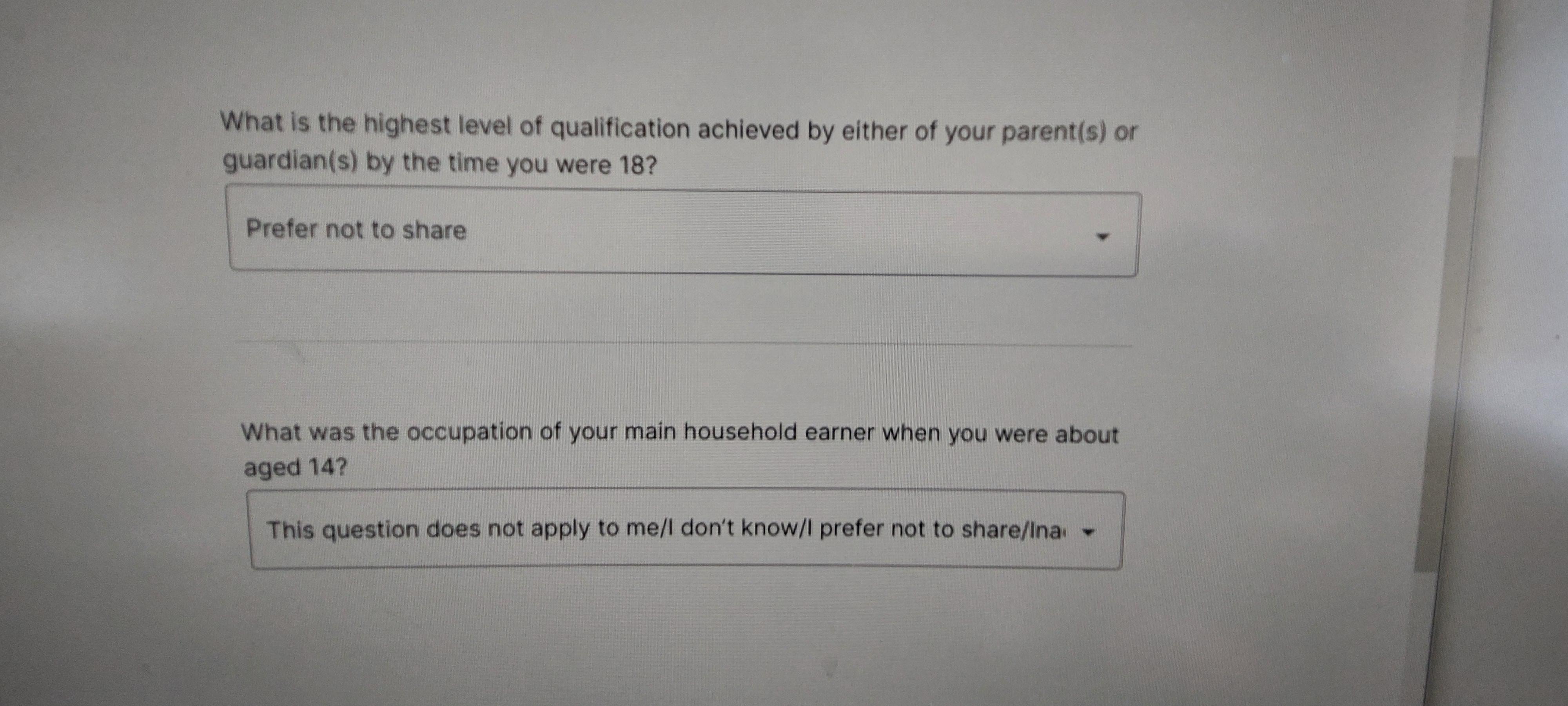this post was submitted on 23 May 2024
16 points (90.0% liked)
Éire / Ireland
611 readers
6 users here now
An Irish community in the fediverse.
Weather & alerts: https://www.met.ie
Health Service: https://www.hse.ie
National Broadcasters: https://www.tg4.ie/en/ https://www.rte.ie
Radio Stations: https://irishradiolive.com
Learn the language: https://www.futurelearn.com/courses/irish-language https://community-courses.memrise.com/community/courses/english/ https://www.duolingo.com/learn
Pollen levels: https://www.pollen.ie
founded 1 year ago
MODERATORS
you are viewing a single comment's thread
view the rest of the comments
view the rest of the comments

A lot of people misunderstand DEI questions, so here's the theory. DEI questions are for HR, and are not seen by the interviewer. They're used to track how successful applicants from different protected groups and social classes are in interviews. The goal is to make sure people from groups that are historically discriminated against are successful in interviews at a similar rate to people who are not from a protected group or class.
Yes, these questions can feel invasive. As someone from a protected group myself, I've felt, at times, that these questions step over a line. But having seen when they are applied correctly, they do have a positive effect.
Are they perfect? Fuck no. HR can slip up, sometimes deliberately so, and share these answers beyond where they should be shared. Or they're not tracked correctly and merely used as a way to excuse systemic failures.
Can they be used for good? Absolutely yes. Systemic injustices are difficult to correct for, take time, and work to overcome. This is a part of that. But I don't begrudge you exercising your right not to answer.
Thank you for the detailed response!
Having seen HR slip up one too many times, my natural response was to question the need for questions like this.